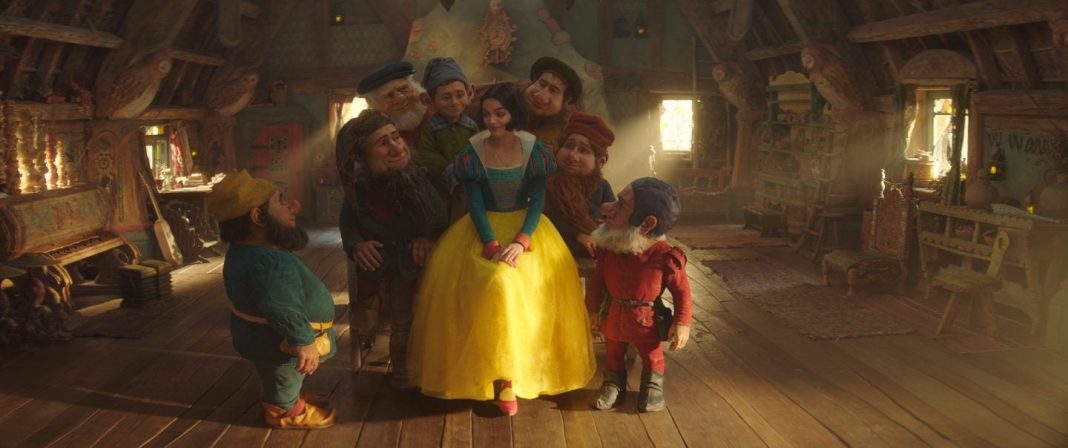For many of us, our childhoods were built upon classic Disney films. Some of us would dress up as these fairytale characters and imagine ourselves going on our own adventures in a faraway land. As the years passed, various adaptations and reinterpretations of the classics many grew up with were developed. Following a string of Disney remakes, a live-action version of “Snow White” directed by Marc Webb is scheduled for release in March 2025. Rachel Zegler, known for her role in “West Side Story,” will play Snow White, while Gal Gadot, star of “Wonder Woman,” will play the Evil Queen.
At first glance, the remake seems exciting, especially when the story pertains to Disney’s first princess. However, after the reveal of Zegler’s role, and later on the release of the movie trailer, the production of this remake soon became the subject of immense controversy.
The casting of Zegler, a Latina actress, has caused an uproar among movie fans who believe Webb’s casting decision is ruining a classic and is trying too hard to represent people of color in classic stories. Snow White is characterized by her skin, so pale that it looks as white as snow. Her skin becomes the defining trait of her beauty, which then serves as an irreplaceable plot device in the overall story. It is why the Evil Queen becomes the second fairest in the land and attempts to kill Snow White.
As a result, fans find that having a person of color play the role of Snow White completely eliminates the princess’s defining characteristic. The issue lies in the fact that classic stories do not have much representation of people of color, who are typically cast as white. Because the older, classic Disney movies tend to exaggerate the whiteness of the main characters, this exact trait becomes a point of contention among avid Disney lovers. Many fans agree that Disney has altered all of the classics in the name of diversity, taking away the connection viewers have felt while watching their favorite Disney movies.
According to Forbes, the live-action remake of “Snow White” is taking a more feminist approach to avoid the damsel-in-distress trope, which can be seen through Andrew Burnhap’s role as Jonathan. This character does not appear in the original. He replaces Prince Charming as Snow White’s potential love interest––another drastic change from the 1937 classic in an effort to avoid romanticizing a character that modern society deems outdated and idealistic.
Besides the backlash over the choice of actress, the movie trailer ignited more disdain by not casting human actors as the seven dwarves. The trailer depicts the dwarves as very obviously animated, appearing somewhat out of place, accompanying Zegler. Not only are the dwarves CGI, but they have also been omitted from the movie title, contrary to the original movie, “Snow White and The Seven Dwarves.” Some fans think that Webb missed out on a chance to cast little people who are eager to act in these roles. Critical viewers also believe Zegler represents Disney’s attempt to diversify classics.
Even among the controversies over “Snow White,” moviegoers still support the upcoming movie, claiming this remake is just another altered story. In fact, the original Grimms story of Snow White is not the same as the 1937 animated adaptation, the movie most people consider the “original.”
In the Brothers Grimm version, Prince Charming was not the one to wake Snow White, but instead, someone hit her back to dislodge the apple. Authors altered certain aspects of the story to fit the times as culture and lifestyles evolved. Supporters of the remake say Webb is doing the same thing by adapting the movie to today’s cultural norms. For example, the apparent absence of Prince Charming is associated with how he is viewed in modern society through the lens of ethics. Prince Charming kissing Snow White would be controversial given the speculated age gap and potential to romanticize non-consensuality. As such, the argument suggests that change is inevitable because of how much society has developed from the 1930s to now.
When recreating classics, the difficult question remains: is it more important to move away from past stereotypes and adapt to evolving cultural norms, or to preserve the stories that have formed the foundation of childhood memories for millions of people? “Snow White” challenges fictional and theatrical conventions to redefine the ideal Disney princess – a cinematic formula poised to transform in years to come.

